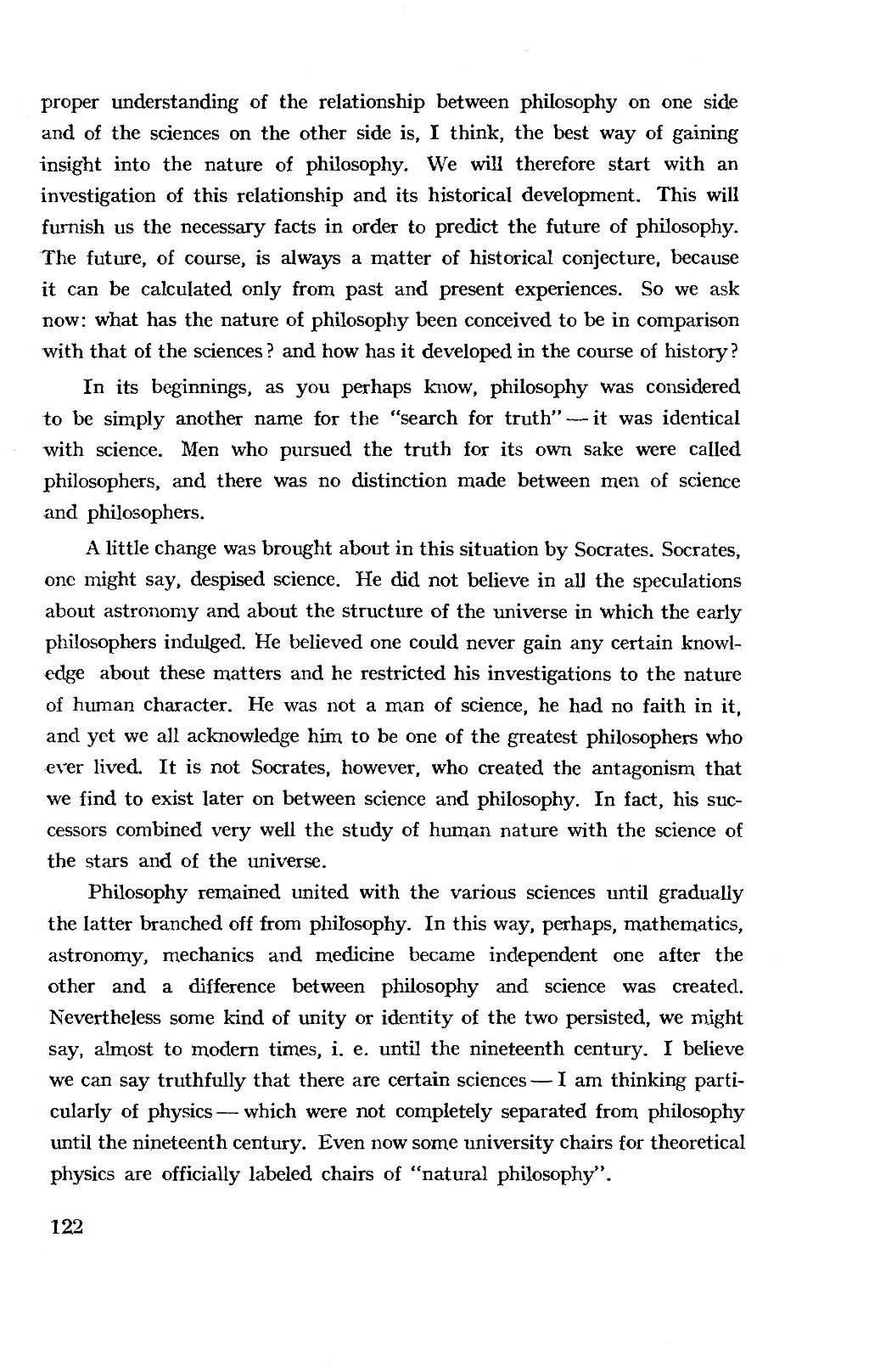proper understanding of the relationship between philosophy on one side and of the sciences on the other side is, I think, the best way of gaining insight into the nature of philosophy. We will therefore start with an investigation of this relationship and its historical development. This will furnish us the necessary facts in order to predict the future of philosophy. The future, of course, is always a matter of historical conjecture, because it can be calculated only from past and present experiences. So we ask now: what has the nature of philosophy been conceived to be in comparison with that of the sciences? and how has it developed in the course of history?
In its beginnings, as you perhaps know, philosophy was considered to be simply another name for the “search for truth” — it was identical with science. Men who pursued the truth for its own sake were called philosophers, and there was no distinction made between men of science and philosophers.
A little change was brought about in this situation by Socrates. Socrates, one might say, despised science. He did not believe in all the speculations about astronomy and about the structure of the universe in which the early philosophers indulged. He believed one could never gain any certain knowledge about these matters and he restricted his investigations to the nature of human character. He was not a man of science, he had no faith in it, and yet we all acknowledge him to be one of the greatest philosophers who ever lived. It is not Socrates, however, who created the antagonism that we find to exist later on between science and philosophy. In fact, his successors combined very well the study of human nature with the science of the stars and of the universe.
Philosophy remained united with the various sciences until gradually the latter branched off from philosophy. In this way, perhaps, mathematics, astronomy, mechanics and medicine became independent one after the other and a difference between philosophy and science was created. Nevertheless some kind of unity or identity of the two persisted, we might say, almost to modern times, i. e. until the nineteenth century. I believe we can say truthfully that there are certain sciences — I am thinking particularly of physics — which were not completely separated from philosophy until the nineteenth century. Even now some university chairs for theoretical physics are officially labeled chairs of “natural philosophy”.
